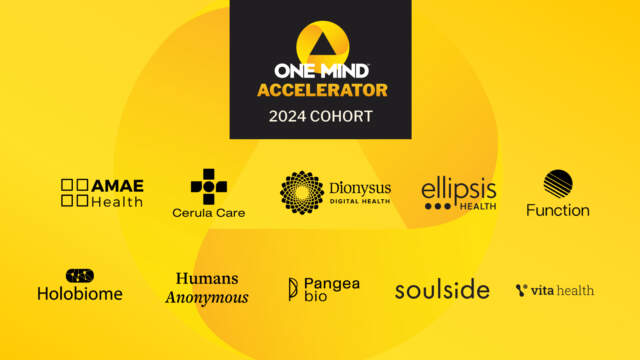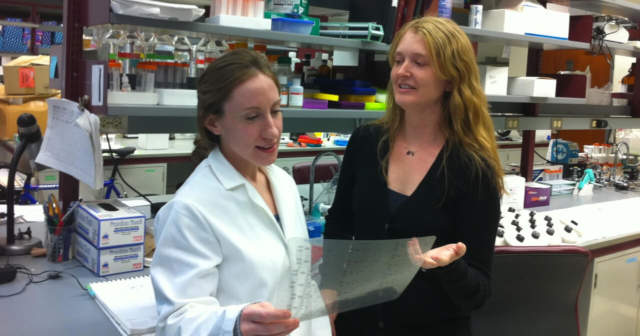Depression is a leading cause of disability worldwide, according to the World Health Organization. It is estimated that 1 in 5 people in the U.S. will experience a major depressive disorder at least once in their lives. Although current antidepressant drugs can reduce the symptoms, they take at least two to four weeks to achieve a therapeutic effect. The delay in therapeutic effects has serious consequences, including the risk of suicide and decreased compliance in using prescribed medications. Clearly, faster acting treatments are needed. Developing these treatments is the goal of Stephanie Dulawa, Ph.D., Associate Professor at the University of San Diego’s Department of Psychiatry, and winner of the 2014 One Mind Institute Rising Star Depression Research Award in Memory of George Largay.
Dr. Dulawa and her colleagues are using multiple mouse models and behavioral tests to systematically evaluate a series of potentially therapeutic drugs. This systematic approach was described in a review article that was published in the journal Molecular Psychiatry (2017) . The review offers a primer for scientists on how to identify fast-onset antidepressants, including recommendations based on the relative usefulness of seven existing rodent models to optimize and accelerate the discovery of novel compounds.
A therapeutic target of interest to Dr. Dulawa was an enzyme called Glyoxalase 1 (GLO1) because of its downstream effects on the transmission of neuronal signals. She hypothesized that inhibition of GLO1 might produce rapid anti-anxiety and antidepressant effects. To examine this hypothesis, mice received treatment with control, GLO1 inhibitors, or the conventional antidepressant fluoxetine, and were assessed in a battery of tests, after either 5 or 14 days of treatment. They made two important discoveries, which were also recently published Molecular Psychiatry (2018). First, both genetic and pharmaceutical inhibition of GLO1 produced antidepressant effects in mice, and second, the antidepressant effects began after only 5 days of treatment. In contrast, the conventional antidepressant did not show a therapeutic effect until 14 days. These promising results suggest that GLO1 inhibitors may provide a novel and fast-acting pharmacotherapy for depression.
Dr. Dulawa and her team are also exploring the biological mechanisms associated with fast-acting and slow-acting therapies. They discovered that fluoxetine, but not the fast-onset antidepressant scopolamine, requires up-regulation of a growth factor called brain derived neurotrophic factor (BDNF) within the medial prefrontal cortex. BDNF is important for maintenance and survival of neurons and for synaptic plasticity, and decreased levels are associated with depression.
In addition to her research on depression, Dr. Dulawa is also using mouse models to elucidate genetic factors and molecular pathways that may contribute to schizophrenia and autism spectrum disorder. Interestingly, they found that genetically modified mice lacking a protein called Disks Large Associated Protein 1 (DLGAP1) had highly specific deficits in social interactions, while all other behavior tests were essentially normal. Linking genetic variants with specific biological and behavioral effects is a major advance forward for developing more personalized treatments for brain disorders. We at One Mind acknowledge and thank Dr. Dulawa for her commitment to research and also gratefully thank our donors for making this possible. We look forward to her continued progress.
Your donation helps One Mind launch promising early-career investigators and their innovative research through the Rising Star Awards. Make a donation today that will accelerate ground-breaking discoveries in brain illness.








